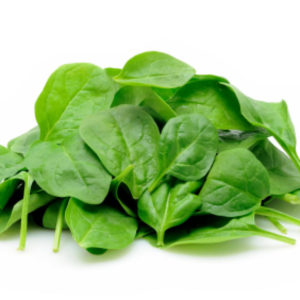
If buying organic is a priority but your budget is limited, here are the foods you want to purchase as organic!
The U.S. Department of Agriculture found that even after washing, some fruits and vegetables consistently carry much higher levels of pesticide residue than others. The Environmental Working Group developed the list of the “dirty dozen” fruits and vegetables. They say you should always buy organic when possible because their conventionally grown counterparts are likely to be loaded with pesticides. But remember the benefits of conventional produce outweigh any risks! So eat your fruits and vegetables no matter how they’re grown. Also, visit the farmer’s market and ask how your local foods are grown, some farmer’s can’t afford the organic certification but use minimal pesticides. Here are the Cleanest 12 which generally do NOT contain pesticide residue.
According to the 2019, Shopper’s Guide to Pesticides in Produce, the dirty dozen (plus one more), and the clean fifteen are as follows:
| Dirty Dozen | Clean Fifteen |
| Strawberries | Avocados |
| Spinach | Sweet Corn |
| Kale | Pineapples |
| Nectarines | Sweet Peas Frozen |
| Apples | Onions |
| Grapes | Papayas |
| Peaches | Eggplants |
| Cherries | Asparagus |
| Pears | Kiwis |
| Tomatoes | Cabbages |
| Celery | Cauliflower |
| Potatoes | Cantaloupes |
| Broccoli | |
| Mushrooms | |
| Plus: Hot Peppers | Honeydew Melons |
credit: Environmental Working Group – https://www.ewg.org/foodnews/
Other organic foods worth considering:
- Meat
- Chicken and other poultry
- Milk
These foods do not contain hormones or added antibiotics. Antibiotics have been related to increased antibacterial resistance in humans.
Seafood
There are no USDA organic certification standards for seafood; producers are allowed to make their own organic claims.
Baby food
Baby food is made up of condensed fruits and vegetables, and therefore the pesticides can be more concentrated. Don’t want to pay the high price for organic baby food? Make your own out of organic fruits and veggies. You can buy frozen fruits and veggies too!
Does organic food cost more?
On average, organic foods cost more than regular food. However, sometimes it’s only a 10 or 15 cent difference. At food warehouses, the cost of organic may be less expensive than your regular grocery store. Also cooking at home with organic food can be less expensive than buying a conventional meal out!
Tips on how to save money when buying organic food:
- Shop sales, farmers markets, and house brands.
- Join a co-op, a buying club, or grow your own.
- Gradually start buying organic.
How to protect yourself from “non-organic” pesticides:
- Buy fresh produce in season. Fewer pesticides are used when long storage and long-distance shipping are not required.
- Trim tops and the very outer portion of celery, lettuce, cabbage, and other leafy vegetables, because that’s where most of the pesticide residue is found.
- Peel and cook when appropriate, even though some nutrients may be lost in the process.
- Eat a variety of fruits and vegetables; this will help limit exposure to any one type of pesticide residue.
- Purchase produce that is under USDA regulations. Produce imported from other countries is not grown under the same regulations enforced by the USDA.
- Wash produce just before preparation. Some experts report scrubbing with a brush removes nearly all insects and dirt, as well as bacteria and some pesticide residues.
- Trim the fat from meats and the skin and fat from poultry and fish; some pesticide residues are concentrated in animal fat.
Does organic food have a higher nutrient content?
No. The nutrient level in food is determined by factors such as plant variety, soil quality, climate, how it is harvested and stored.
Are organic snack foods any healthier?
Not necessarily. While organic chips, crackers, cookies and ice cream (try fruit whip in place of ice cream) are free of unhealthy trans-fat, many are just as sugary and salty as their non-organic counterparts.
Genetically modified foods:
Organic foods are not genetically modified. Sweet Corn, papaya, and summer squash sold in the U.S. are produced from Genetically Engineered (GE) seed stock. If you’re concerned about GMO purchase organic crops to avoid GE produce.
For additional information go to:
- Environmental Working Group
- Environmental Protection Agency Pesticides and Food Family Tips
- The National Organic Program












